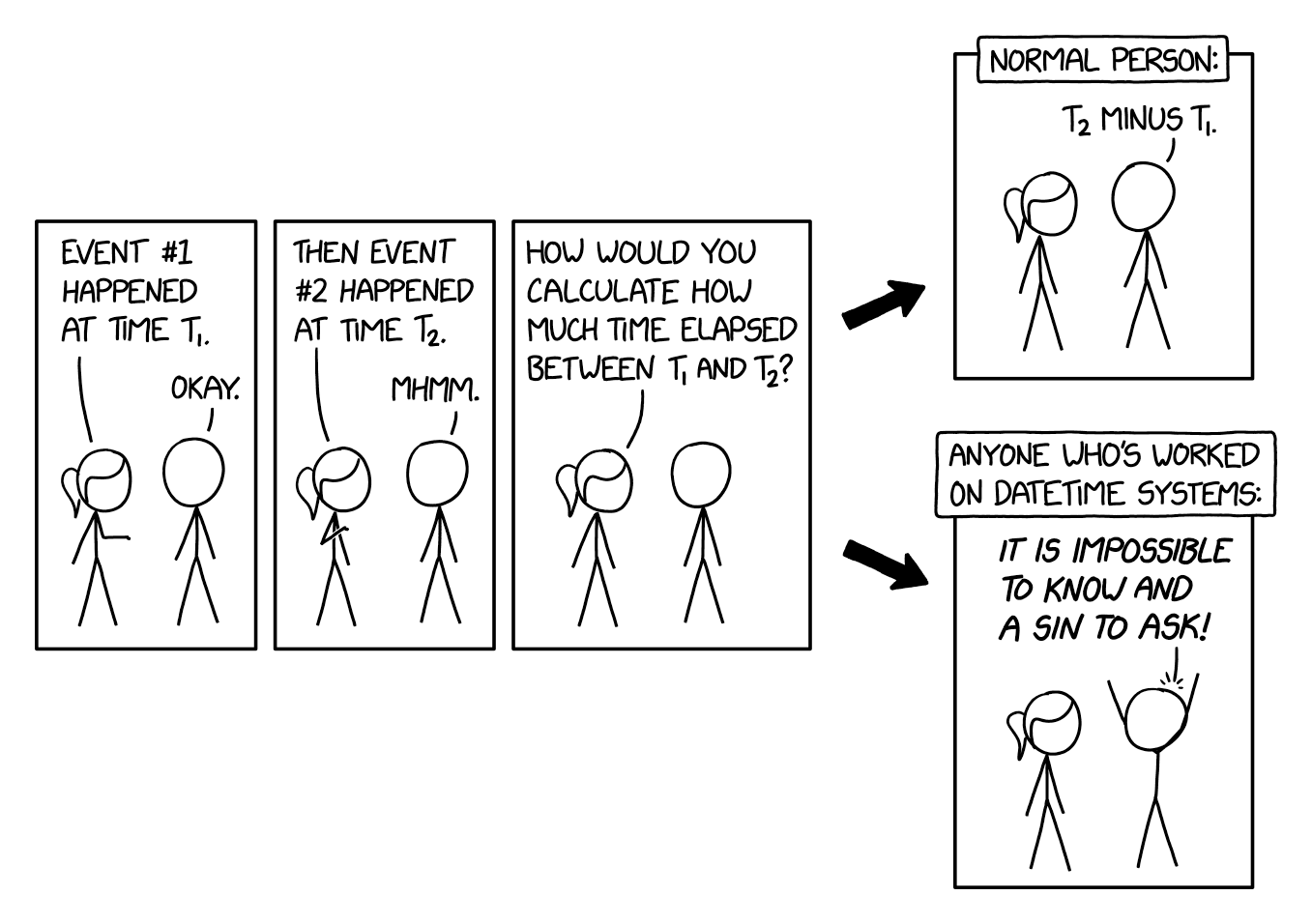this post was submitted on 14 Dec 2023
1013 points (99.2% liked)
xkcd
8836 readers
198 users here now
A community for a webcomic of romance, sarcasm, math, and language.
founded 1 year ago
MODERATORS
you are viewing a single comment's thread
view the rest of the comments
view the rest of the comments

LOL whenever I have to work with DateTime systems that try to account for every possibility (and fail trying) I am reminded that in some disciplines, it's acceptable to simplify drastically in order to do 'close enough' work.
I mean, if spherical cows are a thing because that makes the math of theoretical physics doable, why not relativity-free or just frame-constant date-time measures that are willing to ignore exotic edge cases like non-spherical livestock?
Because "relativity" isn't even close to your biggest problem with time. The way we communicate time changes historically, unpredictably, without obvious record. The only way to know what time you're talking about is to know exactly how you got your information. What location, measured at what time relative to recorded changes in the local time zone, with how much drift relative to the last time you synchronized to which ntp server, and so on. These things easily account for hours or days of error, not just nanoseconds.